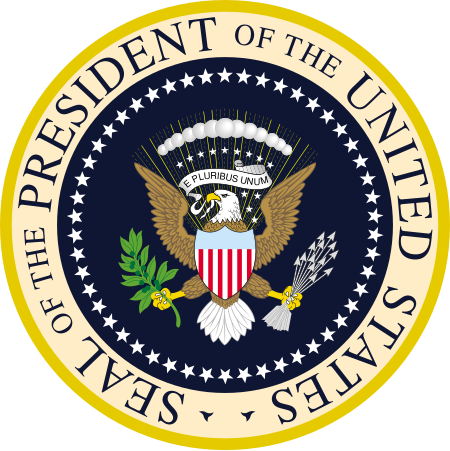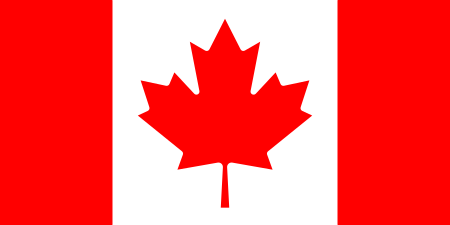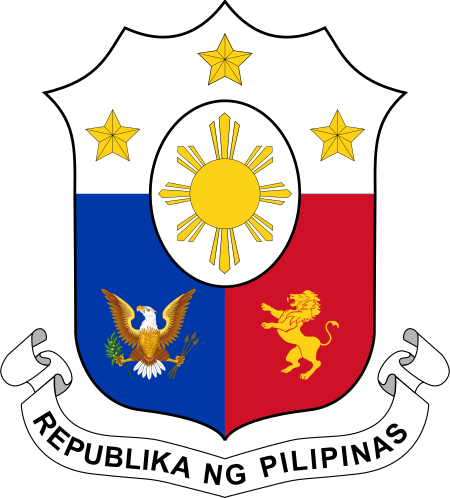|
Wikipedia talk:Naming conventions (Korean)/Archive 7
As WP:NC-KO,
Why are mountains and rivers different? We need to revise WP:NC-KO for consistency with other rivers (gang or cheon), mountains (san), islands (do) in geography of South Korea. I propose that articles about geography are titled with the their full unhyphenated Korean name including san, bong as mountains, gang, cheon as rivers, and do, seom as islands, which are most frequently used. In a typical example, there is Dokdo, not 'Dok Islands'. Sawol (talk) 03:21, 21 August 2012 (UTC)__DTREPLYBUTTONSCONTENT__-->__DTELLIPSISBUTTON__{"threadItem":{"timestamp":"2012-08-21T03:21:00.000Z","author":"Sawol","type":"comment","level":1,"id":"c-Sawol-2012-08-21T03:21:00.000Z-articles_in_geography_of_South_Korea","replies":["c-Amble-2012-08-22T15:20:00.000Z-Sawol-2012-08-21T03:21:00.000Z"]}}-->
- Thanks for proposing the change here. There are a few things we should aim for: consistency across articles; common usage; correctness; and clarity. A bit of logical inconsistency across categories is acceptable if it helps in these other criteria. All of these terms are just words meaning island, river, mountain, etc., and generally treated as part of the name in Korean. (However, they are not absolutely inseparable even in Korean: you can find things like 낙동인도교, or "백두에서 한라까지".) For rivers at least, I think English usage clearly favors translating gang as River rather than transliterating it. This may not apply to islands. There are some islands like Modo that sound a bit ridiculous when rendered as "Mo Island", and there's no tradition in English of treating "Island" as a part of the name of every island. (E.g. "Maui Island" also sounds a bit silly.) My subjective sense of English usage (and my own inclination as an English speaker) is that there's a tension between long names and short names. For very short names, like Dokdo or Apsan, it sounds better to transliterate everything together. For long names such as Baengnyeongdo, esp. with unfamiliar consonant clusters, it sounds better to separate and translate the do.
- On the whole, therefore, I can see an argument either way for mountains and islands. For rivers, I think English usage favors Han River, Nakdong River clearly enough that we should follow suit. --Amble (talk) 15:20, 22 August 2012 (UTC)__DTREPLYBUTTONSCONTENT__-->__DTELLIPSISBUTTON__{"threadItem":{"timestamp":"2012-08-22T15:20:00.000Z","author":"Amble","type":"comment","level":2,"id":"c-Amble-2012-08-22T15:20:00.000Z-Sawol-2012-08-21T03:21:00.000Z","replies":["c-Sawol-2012-08-22T18:41:00.000Z-Amble-2012-08-22T15:20:00.000Z"]}}-->
- I oppose that seperating short names and long names, Korean name of a place is romanized. I think that the most significant mark about naming a place is christener's wish. An up-to-date SBS article is linked. Ministry of Land, Transport and Maritime Affairs, government of South Korea unifies the romanization of Korean name of a place from Han River, Hangang River, or Han-gang to Hangang. Long time ago English usage favored Pusan, Taegu. Now it favors Busan, Daegu. In the meantime the government of South Korea modified Roman spellings. Although English usage favors Han River now, its usage will be changed to Hangang in the foreseeable future. Sawol (talk) 18:41, 22 August 2012 (UTC)__DTREPLYBUTTONSCONTENT__-->__DTELLIPSISBUTTON__{"threadItem":{"timestamp":"2012-08-22T18:41:00.000Z","author":"Sawol","type":"comment","level":3,"id":"c-Sawol-2012-08-22T18:41:00.000Z-Amble-2012-08-22T15:20:00.000Z","replies":["c-Amble-2012-08-22T19:22:00.000Z-Sawol-2012-08-22T18:41:00.000Z","c-Amble-2012-08-22T19:24:00.000Z-Sawol-2012-08-22T18:41:00.000Z","c-Kanguole-2012-08-23T00:21:00.000Z-Sawol-2012-08-22T18:41:00.000Z"]}}-->
- I doubt that will actually change for rivers. English usage has a pretty strong attachment to treating the word River as a part of the name (even if optional). The government of South Korea can decide on naming in its own English-language publications, which may or may not be adopted more generally. --Amble (talk) 19:22, 22 August 2012 (UTC)__DTREPLYBUTTONSCONTENT__-->__DTELLIPSISBUTTON__{"threadItem":{"timestamp":"2012-08-22T19:22:00.000Z","author":"Amble","type":"comment","level":4,"id":"c-Amble-2012-08-22T19:22:00.000Z-Sawol-2012-08-22T18:41:00.000Z","replies":[]}}-->
- In general, Wikipedia follows common usage in English even when it conflicts with official recommendations from governments. That's why we have Kiev, no matter how often someone demands that we must move the article to Kyiv. If the common name in English is Kiev, then that's what the article is called too. --Amble (talk) 19:24, 22 August 2012 (UTC)__DTREPLYBUTTONSCONTENT__-->__DTELLIPSISBUTTON__{"threadItem":{"timestamp":"2012-08-22T19:24:00.000Z","author":"Amble","type":"comment","level":4,"id":"c-Amble-2012-08-22T19:24:00.000Z-Sawol-2012-08-22T18:41:00.000Z","replies":[]}}-->
- We should follow current English usage, which you acknowledge is "Han River", etc. If it changes in the future that's another matter, but it's not our function to promote change – we must follow usage, not official pronouncements. But I agree that a change for rivers is unlikely; it's quite a different situation from adopting the new romanization. Kanguole 00:21, 23 August 2012 (UTC)__DTREPLYBUTTONSCONTENT__-->__DTELLIPSISBUTTON__{"threadItem":{"timestamp":"2012-08-23T00:21:00.000Z","author":"Kanguole","type":"comment","level":4,"id":"c-Kanguole-2012-08-23T00:21:00.000Z-Sawol-2012-08-22T18:41:00.000Z","replies":["c-Sawol-2012-08-23T09:19:00.000Z-Kanguole-2012-08-23T00:21:00.000Z"]}}-->
- I put back ~gang to ~ River such that Han River. I wonder how to separate and translate ~cheon. cheon means river, too. Do you allow the titlings such that Seoraksan, Apsan, Banyabong, Dokdo, Baengnyeongdo, Namiseom. Sawol (talk) 09:19, 23 August 2012 (UTC)__DTREPLYBUTTONSCONTENT__-->__DTELLIPSISBUTTON__{"threadItem":{"timestamp":"2012-08-23T09:19:00.000Z","author":"Sawol","type":"comment","level":5,"id":"c-Sawol-2012-08-23T09:19:00.000Z-Kanguole-2012-08-23T00:21:00.000Z","replies":[]}}-->
__DTSUBSCRIBEBUTTONDESKTOP__{"headingLevel":2,"name":"h-Sawol-2012-08-03T17:55:00.000Z","type":"heading","level":0,"id":"h-New_proposed_guidelines_for_administrative_divisions_in_South_Korea-2012-08-03T17:55:00.000Z","replies":["h-Provinces-New_proposed_guidelines_for_administrative_divisions_in_South_Korea","h-Counties-New_proposed_guidelines_for_administrative_divisions_in_South_Korea-2012-08-03T17:55:00.000Z","h-Districts-New_proposed_guidelines_for_administrative_divisions_in_South_Korea","h-Towns-New_proposed_guidelines_for_administrative_divisions_in_South_Korea","h-Townships-New_proposed_guidelines_for_administrative_divisions_in_South_Korea","h-Neighbourhoods_and_villages-New_proposed_guidelines_for_administrative_divisions_in_South_Korea-2012-08-30T09:11:00.000Z","h-Discussion-New_proposed_guidelines_for_administrative_divisions_in_South_Korea-2012-09-19T02:36:00.000Z"],"uneditableSection":true,"text":"New proposed guidelines for administrative divisions in South Korea","linkableTitle":"New proposed guidelines for administrative divisions in South Korea"}--> New proposed guidelines for administrative divisions in South Korea__DTELLIPSISBUTTON__{"threadItem":{"headingLevel":2,"name":"h-Sawol-2012-08-03T17:55:00.000Z","type":"heading","level":0,"id":"h-New_proposed_guidelines_for_administrative_divisions_in_South_Korea-2012-08-03T17:55:00.000Z","replies":["h-Provinces-New_proposed_guidelines_for_administrative_divisions_in_South_Korea","h-Counties-New_proposed_guidelines_for_administrative_divisions_in_South_Korea-2012-08-03T17:55:00.000Z","h-Districts-New_proposed_guidelines_for_administrative_divisions_in_South_Korea","h-Towns-New_proposed_guidelines_for_administrative_divisions_in_South_Korea","h-Townships-New_proposed_guidelines_for_administrative_divisions_in_South_Korea","h-Neighbourhoods_and_villages-New_proposed_guidelines_for_administrative_divisions_in_South_Korea-2012-08-30T09:11:00.000Z","h-Discussion-New_proposed_guidelines_for_administrative_divisions_in_South_Korea-2012-09-19T02:36:00.000Z"],"uneditableSection":true}}--> Provinces
Please translate the only term do for administrative divisions as in Gyeongsangbuk Province.
Counties
It has been proposed in this section that '○○○' be renamed and moved to '○○○ County' (gun). There is '○○○-eup' in '○○○ county', ○○○-eup should take the name '○○○'. County (gun) is the one of the administrative divisions, so is eup. But eup is a city, gun is not. Sawol (talk) 17:55, 3 August 2012 (UTC)__DTREPLYBUTTONSCONTENT__-->__DTELLIPSISBUTTON__{"threadItem":{"timestamp":"2012-08-03T17:55:00.000Z","author":"Sawol","type":"comment","level":1,"id":"c-Sawol-2012-08-03T17:55:00.000Z-Counties","replies":[]}}-->
Districts
There are two kind of districts, autonomous districts (자치구) and non-autonomous districts (일반구).
I propose two guidelines separately. For autonomous districts, translate the terms gu for administrative divisions as in Gangnam District. We keep in mind that "districts" (자치구), "counties" (군) and cities" (시) are the same-level subdivisions of South Korea.
For non-autonomous districts, the full unhyphenated Korean name including gu should be used, as in Danwon-gu.
Towns
eup is a city. '○○○' except for eup is in common usage. But towns like Dong-eup, Changwon should use the full unhyphenated Korean name. Dong means east. Dong-eup is in common usage.
Townships
For townships, neighbourhoods and villages, the full unhyphenated Korean name including myeon, dong and ri should be used, as in Yangnam-myeon.
Neighbourhoods and villages
For townships, neighbourhoods and villages, the full unhyphenated Korean name including myeon, dong and ri should be used, as in Daechi-dong. But several administrative dong (행정동) reorganizing eup can exclude the term dong. If whole Gaeun-eup is reorganized to one "Gaeun-dong", Gaeun is titled without change. Sawol (talk) 09:11, 30 August 2012 (UTC)__DTREPLYBUTTONSCONTENT__-->__DTELLIPSISBUTTON__{"threadItem":{"timestamp":"2012-08-30T09:11:00.000Z","author":"Sawol","type":"comment","level":1,"id":"c-Sawol-2012-08-30T09:11:00.000Z-Neighbourhoods_and_villages","replies":[]}}-->
Discussion
I propose to follow the official standard. (Revised Romanization of Korean, or [1]). '-si' for city can be omitted. do/gun/gu/eup/myeon/dong/ri should not be ommitted. -- ChongDae (talk) 02:36, 19 September 2012 (UTC)__DTREPLYBUTTONSCONTENT__-->__DTELLIPSISBUTTON__{"threadItem":{"timestamp":"2012-09-19T02:36:00.000Z","author":"ChongDae","type":"comment","level":1,"id":"c-ChongDae-2012-09-19T02:36:00.000Z-Discussion","replies":["c-Sawol-2012-09-20T03:04:00.000Z-ChongDae-2012-09-19T02:36:00.000Z","c-Kwamikagami-2012-10-06T16:58:00.000Z-ChongDae-2012-09-19T02:36:00.000Z","c-Kanguole-2012-10-10T16:54:00.000Z-ChongDae-2012-09-19T02:36:00.000Z"]}}-->
- By the regulation -si, -gun and -eup can be omitted. Sawol (talk) 03:04, 20 September 2012 (UTC)__DTREPLYBUTTONSCONTENT__-->__DTELLIPSISBUTTON__{"threadItem":{"timestamp":"2012-09-20T03:04:00.000Z","author":"Sawol","type":"comment","level":2,"id":"c-Sawol-2012-09-20T03:04:00.000Z-ChongDae-2012-09-19T02:36:00.000Z","replies":[]}}-->
- Comment I agree that easily translatable things like 'city' should be translated. I'd go further, however: at least in the case of the provinces, 'north' and 'south' should also be translated into English. This is because we are English Wikipedia and few of our readers can be expected to know Korean. So, South Gyeongsang Province, with a bolded Gyeongsangnam-do following immediately in the lead. This follows usage for many countries; the formal name of Mexico, for example, is given in English as the United Mexican States. Chinese provinces like Hunan might be given as a counterexample, but they are universally found in that form in English, unlike the Korean provinces, and hardly anyone recognizes that there is a 'south' in that name. Korean provinces are more like in the rest of the world: both forms are found, and for accessibility reasons we should give primacy to the more easily understood forms. — kwami (talk) 16:58, 6 October 2012 (UTC)__DTREPLYBUTTONSCONTENT__-->__DTELLIPSISBUTTON__{"threadItem":{"timestamp":"2012-10-06T16:58:00.000Z","author":"Kwamikagami","type":"comment","level":2,"id":"c-Kwamikagami-2012-10-06T16:58:00.000Z-ChongDae-2012-09-19T02:36:00.000Z","replies":[],"displayName":"kwami"}}-->
- I agree with the translation of "North" and "South" in province names for the above reasons, because it is common in English writing, and because it makes plain that these are divisions of three of the traditional eight provinces. Kanguole 16:54, 10 October 2012 (UTC)__DTREPLYBUTTONSCONTENT__-->__DTELLIPSISBUTTON__{"threadItem":{"timestamp":"2012-10-10T16:54:00.000Z","author":"Kanguole","type":"comment","level":2,"id":"c-Kanguole-2012-10-10T16:54:00.000Z-ChongDae-2012-09-19T02:36:00.000Z","replies":["c-Sawol-2012-10-10T18:53:00.000Z-Kanguole-2012-10-10T16:54:00.000Z"]}}-->
- I think that maintaining consistency in administrative divisions be most important. Namyangju is in Gyeonggi Province. By South Gyeongsang Province Namyangju must be "South Yangju," and Ilsandong District "East Ilsan." Sawol (talk) 18:53, 10 October 2012 (UTC)__DTREPLYBUTTONSCONTENT__-->__DTELLIPSISBUTTON__{"threadItem":{"timestamp":"2012-10-10T18:53:00.000Z","author":"Sawol","type":"comment","level":3,"id":"c-Sawol-2012-10-10T18:53:00.000Z-Kanguole-2012-10-10T16:54:00.000Z","replies":["c-Kanguole-2012-10-11T13:17:00.000Z-Sawol-2012-10-10T18:53:00.000Z"]}}-->
- Consistency would require always using romanized Korean names, but that would not match English-language usage, and would ill serve users of an English-language encyclopedia. I see there's substantial usage of "South Yangju" and a bit less of "East Ilsan". The line would have to be drawn somewhere -- no-one will insist that "Gangnam" be translated. Kanguole 13:17, 11 October 2012 (UTC)__DTREPLYBUTTONSCONTENT__-->__DTELLIPSISBUTTON__{"threadItem":{"timestamp":"2012-10-11T13:17:00.000Z","author":"Kanguole","type":"comment","level":4,"id":"c-Kanguole-2012-10-11T13:17:00.000Z-Sawol-2012-10-10T18:53:00.000Z","replies":[]}}-->
This is the result of putting the various ideas together until now.
- Province : North Gyeongsang Province is selected, by Talk:South Gyeongsang Province and above.
- County : Chilgok County is selected, by Talk:Chilgok County and above.
- District of metropolitan cities : Gangnam District is selected, by Talk:Gangnam District and above.
- third-level administrative divisions (gu, eup, myeon, dong, ri) : They are named "X-gu", "X-eup", "X-myeon", "X-dong", "X-ri." Only -eup and -myeon can be omitted.
A few days later the above result is applied to Wikipedia:Naming conventions (Korean). Sawol (talk) 08:10, 1 November 2012 (UTC)__DTREPLYBUTTONSCONTENT__-->__DTELLIPSISBUTTON__{"threadItem":{"timestamp":"2012-11-01T08:10:00.000Z","author":"Sawol","type":"comment","level":1,"id":"c-Sawol-2012-11-01T08:10:00.000Z-Discussion","replies":["c-In_ictu_oculi-2012-11-29T07:46:00.000Z-Sawol-2012-11-01T08:10:00.000Z"]}}-->
- Sawol
- Please slow down.
- silence above isn't necessarily consent for these changes. In ictu oculi (talk) 07:46, 29 November 2012 (UTC)__DTREPLYBUTTONSCONTENT__-->__DTELLIPSISBUTTON__{"threadItem":{"timestamp":"2012-11-29T07:46:00.000Z","author":"In ictu oculi","type":"comment","level":2,"id":"c-In_ictu_oculi-2012-11-29T07:46:00.000Z-Sawol-2012-11-01T08:10:00.000Z","replies":[]}}-->
Counties in the South are typically titled as Foo County, while the ones in the North are at the base name, e.g. Anak, Ryongyon, or Samchon. Is there any reason for this difference? In Korean, all the counties are called "군" (-gun), whether they are north or south of the DMZ. North Korean usage does not justify the current practice. KCNA gives Anak County, Ryongyon County, Samchon County, Sinyang County and Ongjin County. The reason for pre-disambiguating these titles is that a county often has the same name as the county seat, and it is English-language convention to put the town at the base name. This problem exists in both the North and in the South. For example, Anak Town is seat of Anak County. There is an RM on this issue here. Kauffner (talk) 12:04, 4 December 2012 (UTC)__DTREPLYBUTTONSCONTENT__-->__DTELLIPSISBUTTON__{"threadItem":{"timestamp":"2012-12-04T12:04:00.000Z","author":"Kauffner","type":"comment","level":1,"id":"c-Kauffner-2012-12-04T12:04:00.000Z-Counties_in_North_Korea","replies":[]}}-->
Comment Before Korea was divided, gun of Korea is the same. At 1952 North Korea was divided a gun to the several small gun. gun of South Korea is different from gun of North Korea, although they have the same name gun. gun of North Korea is smaller than gun of South Korea. I wonder whether gun of North Korea is a county or a town? whether Ŭp of North Korea is a town or a village? User:Kauffner, could you explain for KCNA? I cannot connect to the website. Sawol (talk) 07:30, 6 December 2012 (UTC)__DTREPLYBUTTONSCONTENT__-->__DTELLIPSISBUTTON__{"threadItem":{"timestamp":"2012-12-06T07:30:00.000Z","author":"Sawol","type":"comment","level":1,"id":"c-Sawol-2012-12-06T07:30:00.000Z-Counties_in_North_Korea","replies":["c-Kauffner-2012-12-07T09:34:00.000Z-Sawol-2012-12-06T07:30:00.000Z"]}}-->
- KCNA is the North's news agency, equivalent to Yonhap for South Korea, AFP (France), or DPA (Germany). If only communist propaganda wasn't censored in the South, everyone would know what kind of state NK is.Kauffner (talk) 09:34, 7 December 2012 (UTC)__DTREPLYBUTTONSCONTENT__-->__DTELLIPSISBUTTON__{"threadItem":{"timestamp":"2012-12-07T09:34:00.000Z","author":"Kauffner","type":"comment","level":2,"id":"c-Kauffner-2012-12-07T09:34:00.000Z-Sawol-2012-12-06T07:30:00.000Z","replies":[]}}-->
Support per nomination. Sawol (talk) 11:29, 9 December 2012 (UTC)__DTREPLYBUTTONSCONTENT__-->__DTELLIPSISBUTTON__{"threadItem":{"timestamp":"2012-12-09T11:29:00.000Z","author":"Sawol","type":"comment","level":1,"id":"c-Sawol-2012-12-09T11:29:00.000Z-Counties_in_North_Korea","replies":[]}}-->
There are multiple references in this guideline at Wikipedia:Naming_conventions_(Korean)#Romanization_of_names that defer to the nameholder's preference. This seems contrary to the WP:COMMONNAME policy that defers to the most common name used in English sources. For example, COMMONNAME seems to be followed in Wikipedia:Naming conventions (Chinese). Should this be changed here as well?—Bagumba (talk) 19:10, 19 December 2012 (UTC)__DTREPLYBUTTONSCONTENT__-->__DTELLIPSISBUTTON__{"threadItem":{"timestamp":"2012-12-19T19:10:00.000Z","author":"Bagumba","type":"comment","level":1,"id":"c-Bagumba-2012-12-19T19:10:00.000Z-Common_name","replies":["c-AutomaticStrikeout-2012-12-19T19:25:00.000Z-Bagumba-2012-12-19T19:10:00.000Z"]}}-->
- Yes it should be changed. AutomaticStrikeout (T • C) 19:25, 19 December 2012 (UTC)__DTREPLYBUTTONSCONTENT__-->__DTELLIPSISBUTTON__{"threadItem":{"timestamp":"2012-12-19T19:25:00.000Z","author":"AutomaticStrikeout","type":"comment","level":2,"id":"c-AutomaticStrikeout-2012-12-19T19:25:00.000Z-Bagumba-2012-12-19T19:10:00.000Z","replies":[]}}-->
Notification of this discussion was left at a related discussion at Talk:Choo Shin-Soo#Requested move.—Bagumba (talk) 19:32, 19 December 2012 (UTC)__DTREPLYBUTTONSCONTENT__-->__DTELLIPSISBUTTON__{"threadItem":{"timestamp":"2012-12-19T19:32:00.000Z","author":"Bagumba","type":"comment","level":1,"id":"c-Bagumba-2012-12-19T19:32:00.000Z-Common_name","replies":[]}}-->
Notification of this discussion was left at Wikipedia_talk:Article_titles#Korean_naming_convention_guideline.—Bagumba (talk) 21:08, 19 December 2012 (UTC)__DTREPLYBUTTONSCONTENT__-->__DTELLIPSISBUTTON__{"threadItem":{"timestamp":"2012-12-19T21:08:00.000Z","author":"Bagumba","type":"comment","level":1,"id":"c-Bagumba-2012-12-19T21:08:00.000Z-Common_name","replies":["c-In_ictu_oculi-2012-12-27T10:35:00.000Z-Bagumba-2012-12-19T21:08:00.000Z"]}}-->
- But how much should it be changed. We've had sports projects try and take ownership over nationals of other countries before - giving Canadian names to Czechs who touch ice in Canada once in their lives, and Australian names to Serbian passport holders who play tennis in Serbia, and it's pretty disruptive - and has been massively rejected. Koreans who play baseball but don't give up their passports for a green card shouldn't be Americanized any more than Dominicans (which we also don't do). However I do realise that Baseball has a bit of a bubble thing going on re Korean players surname order so it's possible to live with a hyphenized solution like Talk:Shin-Soo Choo. But to even deny the hyphen which is there in quality sources like Lewin & Hamilton and Paul Lebowitz as Talk:Cha Seung Baek is going against Wikipedia:Naming_conventions_(Korean)#Romanization_of_names and not serving WP:COMMONNAME either. WP:COMMONNAME is what is in WP:RS sources like Lewin & Hamilton and Paul Lebowitz, not in WP:NOT RS. In ictu oculi (talk) 10:35, 27 December 2012 (UTC)__DTREPLYBUTTONSCONTENT__-->__DTELLIPSISBUTTON__{"threadItem":{"timestamp":"2012-12-27T10:35:00.000Z","author":"In ictu oculi","type":"comment","level":3,"id":"c-In_ictu_oculi-2012-12-27T10:35:00.000Z-Bagumba-2012-12-19T21:08:00.000Z","replies":["c-LittleBenW-2012-12-30T14:13:00.000Z-In_ictu_oculi-2012-12-27T10:35:00.000Z"]}}-->
- Surely it depends what one recognizes as reliable sources in English. Virtually every government of every country has one or more official English-language web sites and one or more official English-language news sites where they use the official English equivalent of place names and peoples' names. Surely it is ridiculous to claim that the government of a country is not a reliable source as to how place names and peoples' names relating to that country should be written in English. For Korea, http://www.Korea.net is one of the official English web sites.
- In Japan, and possibly also in Korea, people are given some leeway as to how they prefer that the romanized version of their name (shown on their passport) be written. Surely it is ridiculous to claim that the romanized version of one's name as it appears on one's passport is not a reliable source as to how it should be spelled in English. Surely major sporting bodies such as the Olympic Committee base the names that they report on the names shown in passports. LittleBen (talk) 14:13, 30 December 2012 (UTC)__DTREPLYBUTTONSCONTENT__-->__DTELLIPSISBUTTON__{"threadItem":{"timestamp":"2012-12-30T14:13:00.000Z","author":"LittleBenW","type":"comment","level":4,"id":"c-LittleBenW-2012-12-30T14:13:00.000Z-In_ictu_oculi-2012-12-27T10:35:00.000Z","replies":["c-68.4.171.121-2012-12-30T16:00:00.000Z-LittleBenW-2012-12-30T14:13:00.000Z"],"displayName":"LittleBen"}}-->
- WP:OFFICIALNAMES may be mentioned in the lead, but are not automatically the article's title. The reader should not be WP:ASTONISHed by an uncommon name as the article's title. A news source in Korea can be reliable, but would be weighed with other English sources around he world.68.4.171.121 (talk) 16:00, 30 December 2012 (UTC)__DTREPLYBUTTONSCONTENT__-->__DTELLIPSISBUTTON__{"threadItem":{"timestamp":"2012-12-30T16:00:00.000Z","author":"68.4.171.121","type":"comment","level":5,"id":"c-68.4.171.121-2012-12-30T16:00:00.000Z-LittleBenW-2012-12-30T14:13:00.000Z","replies":["c-LittleBenW-2012-12-30T16:58:00.000Z-68.4.171.121-2012-12-30T16:00:00.000Z"]}}-->
- Agree. LittleBen (talk) 16:58, 30 December 2012 (UTC)__DTREPLYBUTTONSCONTENT__-->__DTELLIPSISBUTTON__{"threadItem":{"timestamp":"2012-12-30T16:58:00.000Z","author":"LittleBenW","type":"comment","level":6,"id":"c-LittleBenW-2012-12-30T16:58:00.000Z-68.4.171.121-2012-12-30T16:00:00.000Z","replies":[],"displayName":"LittleBen"}}-->
|
|



















